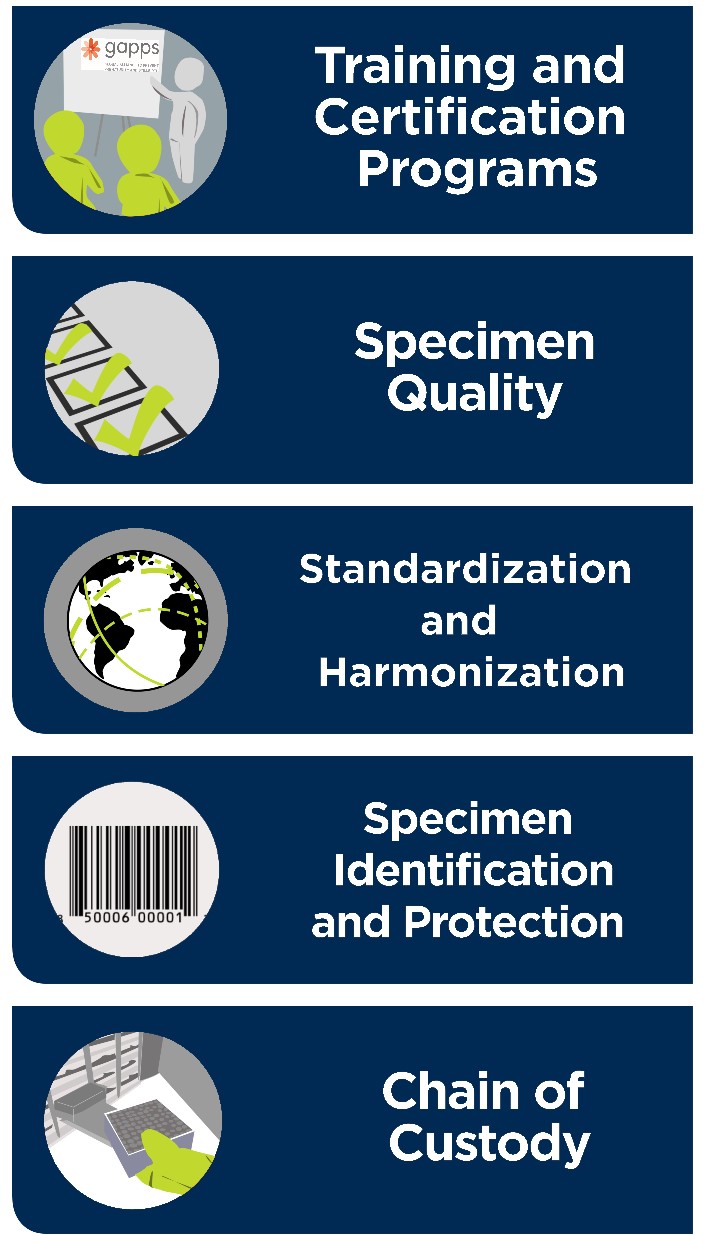GAPPS BioServices Operational Details
GAPPS BioServices provides:
- Centralized bioinformatics
- Data management
- Regulatory oversight
- Collection protocols
- Collection kits
- Quality control
- Utilization review
- Database queries
- Standard Operating Procedures and related materials
GAPPS Collection Network
GAPPS BioServices receives specimens and data from a network of collection sites, including Yakima Valley Memorial Hospital, Swedish Medical Center, and the University of Washington Medical Center. Launched in Washington State, GAPPS is working to expand this network across the nation and around the world. GAPPS BioServices also serves as a model for other pregnancy and early childhood research sites, and researchers from around the world are accessing our Standard Operating Procedures for use in their own collections.
Specimen Collection Kits
GAPPS BioServices specimen collection kits are designed to ensure participant privacy, accuracy, and ease of use, and can be tailored to meet the needs of prospective collections. Each comprehensive, pre-packaged kit of collection supplies is labeled with a unique kit ID number which is linked with specimen ID numbers and unique participant research numbers. To ensure privacy, no personal identification information is available to GAPPS BioServices staff.
Quality Assurance for Specimens and Data
Quality assurance is a continuous process used when collecting, storing, and distributing samples and data to researchers. These steps ensure that each product is suitable for the intended purpose and produced and distributed correctly. At GAPPS, we outline these steps as:

Training and certification programs: GAPPS BioServices maintains a rigorous training program in support of each collection type. This includes a complete suite of training materials, instructor-led training, proficiency evaluation including laboratory observation, and annual testing and re-certification.
Specimen quality: Specimen quality is designed into the entire specimen and data collection and distribution process. GAPPS maintains adherence to NCLS and ISBER best practices for repositories as well as implements numerous in-house programs to monitor and maintain specimen and data quality.
Standardization and harmonization: GAPPS is a leader in harmonization efforts and has worked closely with several international maternal and child health repositories to ensure their collections are comparable and adhere to best practices. GAPPS shares its Standard Operating Procedures to encourage standardization of collection and processing, and also offers consultation services to other biobanks.
Specimen identification and protection: Ensuring specimen identity and data quality are of paramount importance, and GAPPS BioServices employs a multi-tiered system of safeguards, including robust kit collection systems, electronic data entry backed by paper forms, real time data cross-checks, and controlled terminology on all electronic data forms.
Chain of custody: Specimen movements through the system are tracked via numerous critical parameters such as ownership, location, temperature, and time stamps logged at every step. This level of detail creates a complete life history for every specimen.
